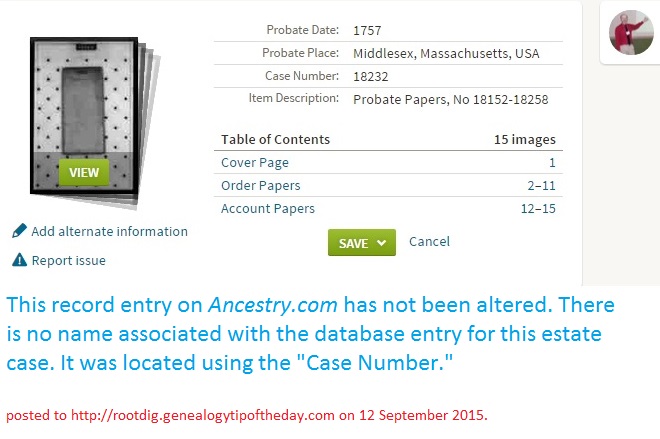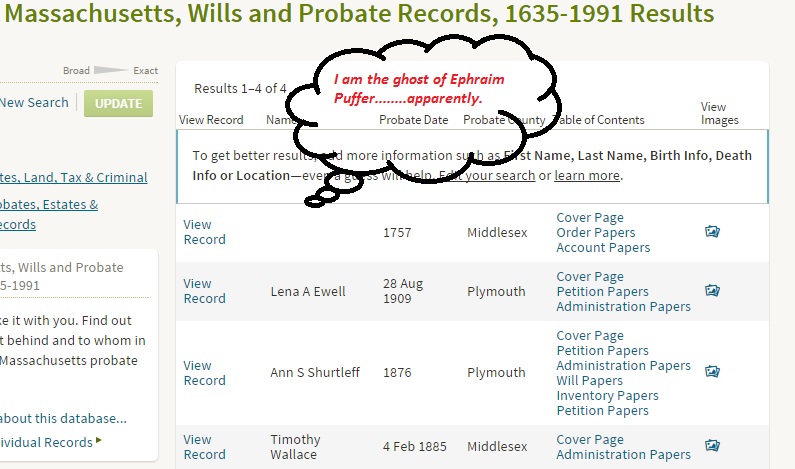There is a reason why it is to the genealogist’s advantage to have as many indexes as possible to the same set of records. Redundancy is sometimes a good thing. There are times when the “new and improved” index is new, but not necessarily improved.
The estate of Ephraim Puffer from Middlesex County, Massachusetts, is a case in point. His name did not appear in the index to probate records on Ancestry.com. Varying his name did not help. Looking for all the Puffers did not help. I knew he had a probate file in Middlesex County as I had digital images in my possession made from those records. Fortunately I copied the “file jacket” for his case file which contained the case number. That was how I located his record at Ancestry.com in their “probate database.” I searched the database for his case number without his name.
According to the Ancestry.com index, Ephraim’s estate was an apparently anonymous one. There is no name on the database entry as shown below:

The lack of a name is even more clear on the “search results” that were obtained when I searched for the file number 18232.
I’m assuming at some point the entry will be fixed.
If I was an uninitiated user of these records, would I have found this entry? Would I have thought to use the county’s index to these records (which Ancestry.com does have available digitally right along with the probate records from this county)?
Note: this is one of the examples I discuss in my recent webinar on the probate records at Ancestry.com.


No responses yet